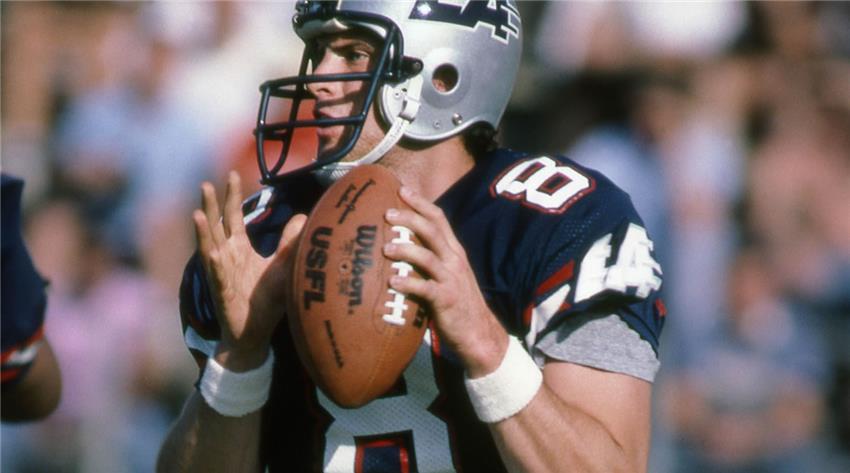
Can a Player Refuse an NFL Draft Pick?
The NFL Draft is the hotbed where ambitious athletes' goals and franchise executives' strategic visions collide in the high-stakes world of professional football. Franchises carefully choose the upcoming crop of gridiron gladiators each spring to fill in the gaps in their championship puzzles
The tempting offers are plentiful and excellent, just like the casino free spins bonuses for Australians. But among all of the celebration and enthusiasm, one crucial issue remains in the minds of fans and players alike: Is it ever possible for an NFL player to decline a draft pick?
Can a Player Really Refuse a Draft Pick?
Unfortunately, the league's regulations state that players can't refuse a draft pick, but they can express their preferences before the draft or voice their concerns about the draft results. It is uncommon for players to publicly air their discontent about the draft results, generally because most newcomers are happy to join the league, and those with contentions would rather avoid bad press. The National Football League regulations state that only the team that picks a player during the draft reserves the right to sign a contract with the player, and the player can join the team after an agreement. There are a few reasons why a player can not refuse a pick after the draft. After all, agreeing with the choice is more challenging than choosing a casino from an up-to-date list of the best online casinos in Australia. Below, you can read about common reasons for refusal.Job Security and Power Leveling
The draft pick is the only way for a player to join a team in the NFL, so it will be a pretty daring task to turn an offer down. Only the best talents in the country make it to the drafts after beating a ton of competition. It is most definitely a win to play for any side in the NFL.
The primary objective of the draft is to level out the competitive ability of each team so each team stands a chance against the others. It will be a massive disruption in the system if a player tries to protest a pick for personal reasons. It would be better for the league if the new talents played their part in sustaining it.
Rights and Existing Agreements
After a team picks their desired player, they own the right to his services in the league. Even if a player is discontent, the only party who can influence the situation is the team by trading the plate for another in the league or trading the player for another pick. Objections don't matter much, as the team is mainly in control.
Before the draft begins, players agree to present rules involving the league, the teams and the (CBA). Players are expected to honour their previous agreements irrespective of the results of the picks. There might be legal implications to refusing a draft pick.
How Refusing a Draft Pick Might Influence a Player's Future Prospects
However, what occurs if the player attempts to reject the pick? Denying an NFL draft pick affects a player's future possibilities. Of course, this choice affects the player's reputation and opportunities to play in the future. This becomes a key moment that could influence the player's reputation inside the team, the conditions of their contract, and the opinions of other players and fans. The ripple effects extend beyond the short-term consequences and substantially influence a player's legacy and career in the fiercely competitive world of professional football.
What Players Have Refused Their Draft Picks in the NFL?
While some players consider getting selected for the NFL Draft their ultimate goal, others have chosen to break tradition and not accept the path their draft option assigned them. These rare but significant events highlight the complex relationships between players and teams. Players' accounts of declining draft options in the tightly controlled world of professional football offer a unique viewpoint on the evolution of player empowerment, from making deliberate career decisions to preserving personal values. The following is a list of five prominent players:
John Elway (1983)
John Elway's situation in 1983 is one of the most famous examples of a college player refusing to join the team that drafted him. Elway, a standout quarterback at Stanford University, was the prime prospect in the 1983 NFL Draft. However, he was openly reluctant to play for the Baltimore Colts, who had the first overall pick. His concerns were multifaceted, focusing on the Colts' management, coaching staff, and overall team direction. Elway had a unique bargaining chip – he was also a talented baseball player, having been drafted by the New York Yankees. He used this leverage to his advantage, threatening to switch to baseball if the Colts drafted him. Despite his warnings, the Colts selected him, leading to a standoff. Eventually, the Colts caved to Elway's demands and traded him to the Denver Broncos. This move proved to be a win for Elway, who led the Broncos to multiple Super Bowl appearances and victories, establishing himself as one of the NFL's greatest quarterbacks.
Jim Kelly (1983)
Jim Kelly, coming out of the University of Miami as a highly-touted quarterback, was selected by the Buffalo Bills in the 1983 NFL Draft. Despite being the 14th overall pick, Kelly was hesitant to join the Bills. His main concerns were the challenging winter weather in Buffalo and the team's poor performance at the time. Rather than playing for the Bills, Kelly chose to sign with the Houston Gamblers of the United States Football League (USFL), where he played for two seasons and showcased his exceptional talent. When the USFL folded in 1986, Kelly finally joined the Buffalo Bills. In Buffalo, he overcame his initial reservations and led the team to four consecutive Super Bowl appearances in the early 1990s. His successful tenure with the Bills cemented his status as one of the franchise's greatest players and earned him a place in the Pro Football Hall of Fame.
Eli Manning (2004)
Eli Manning's story in 2004 shares similarities with Elway's. Manning, a successful quarterback from the University of Mississippi and coming from a family of NFL quarterbacks, was another top draft prospect. The San Diego Chargers, holding the first overall pick in the 2004 NFL Draft, were keen on Manning. However, Manning and his camp, particularly influenced by his father, Archie Manning, a former NFL quarterback himself, expressed a strong preference against playing for the Chargers. The reasons were not as publicly detailed as Elway's, but there were insinuations about the Chargers' organizational issues. On draft day, the Chargers still selected Manning, leading to an awkward situation where Manning was visibly displeased. This standoff was resolved when the Chargers traded Manning to the New York Giants, where he went on to have a successful career, winning two Super Bowls and earning multiple Pro Bowl selections. This situation, like Elway's, highlighted the unique power dynamics sometimes at play in NFL drafts and the influence top prospects can wield.
Bo Jackson (1986)
Bo Jackson, a multi-sport star at Auburn University, was selected first overall by the Tampa Bay Buccaneers in the 1986 NFL Draft. However, Jackson refused to play for the Buccaneers for a unique reason. He believed that the Buccaneers intentionally sabotaged his college baseball career by inviting him on a visit that turned out to be a violation of NCAA rules. As a result, Jackson chose to play professional baseball and was later drafted by the Kansas City Royals. The following year, he entered the NFL Draft again and was selected by the Los Angeles Raiders, where he played football as a secondary sport to his baseball career.
Steve Young (1984)
While not a direct refusal to play for a particular team, Steve Young's situation is still notable. After a successful college career at Brigham Young University, Young decided to bypass the NFL Draft initially and signed with the Los Angeles Express of the United States Football League (USFL). His decision was influenced by the significant contract offer from the USFL and the uncertainty of where he might land in the NFL Draft. After the USFL folded, Young entered the NFL and eventually joined the San Francisco 49ers, where he had a Hall of Fame career.
Ricky Bell (1977)
Ricky Bell, a highly talented running back from the University of Southern California, was initially reluctant to play for the Tampa Bay Buccaneers, who had the first overall pick in the 1977 NFL Draft. Bell's hesitation stemmed from the Buccaneers' status as a struggling expansion team with a poor track record. However, after negotiations and assurances from the team, Bell agreed to join the Buccaneers. He played for Tampa Bay for five seasons before his career was cut short due to health issues.
These instances underscore the complex dynamics between NFL teams and top draft prospects. The decisions of these players were influenced by a variety of factors, including team reputation, management, personal preferences, and alternative career opportunities.
Conclusion
Except for rare occasions like these examples, you would not find cases where players refuse their picks in the National Football League. Players who have made the bold move of refusing often have a fallback plan like other sports careers, personal reasons, or they are driven heavily by circumstances. Ernie Davies, for example, said no to the RedSkins due to racial concerns in the club management, which is a significant thing to consider when joining a team. So, can an NFL player refuse a draft pick? Essentially, no. If your team picks your favorite during the draft, you can be assured they are not rejecting the selection.
